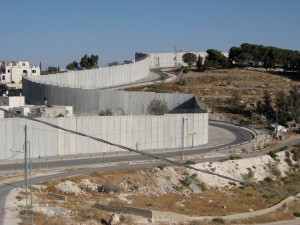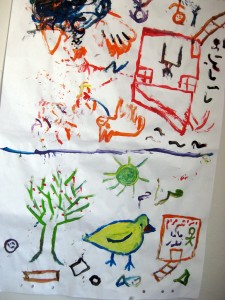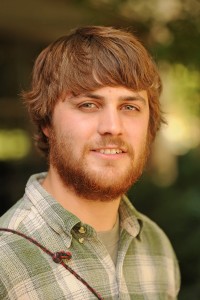Ben Barwick cringes when he sees Kansans watering their lawns- especially when they do so after a recent rainfall. His experiences in the Holy Lands this summer as a member of a Christian Peacemaker Teams (CPT) delegation helped him see the preciousness of water and learn how power and oppression lead to the inequities in the availability of this basic resource.
“For a while, I didn’t want to walk on grass anymore,” he said after his return from the July 23-Aug.3 delegation.
Barwick, a 2008 Hesston College graduate in youth ministries, is a member of Waterford Mennonite Church in Goshen, Ind. where he first learned about CPT in MYF (his church youth group). He works at Kropf Lumber in Hesston and is considering becoming a CPT reservist or full-timer.

Unlike tourists who notice the green hilltop Israeli settlements surrounding many of the historical sites in the Bible, but get only a glimpse of the dry, dusty, Palestinian cities and refugee camps of the Occupied Territories, Barwick and his 11 teammates experienced first-hand what living with very little water is like. In the CPT apartment in Hebron, water is used and re-used before the gray water is finally flushed into the squat toilet.
Long-term CPT members and delegates try to make do on the limited amounts of water that the average Palestinian in the Occupied Territories uses. According to a report by B’tselem, the Israeli Information Center for Human Rights in the Occupied Territories, Palestinians in the West Bank consume only 66 liters of water per capita per day, which is less than 2/3 of the water requirements recommended by the World Health Organization – and these 66 liters includes water for the Palestinians’ livestock and irrigation. Their Israeli neighbors use more than 3.5 times as much water.

Some soldiers who have returned from military service in Hebron have formed “Breaking the Silence,” a movement in which they are telling their stories. “They didn’t feel good about what they did to oppress people,” Barwick said.
The man who exposed Israel’s nuclear armaments, Mordechai Vanunu was “one of the most amazing people I met,” Barwick said. While working in one of Israel’s nuclear weapons plants, Vanunu photographed more than 200 missiles and sent the photos to the British press. The “whistle blower” was subsequently arrested and served 18 years in prison as a traitor. Vanunu is now restricted from leaving East Jerusalem. He plans to take his case to the Supreme Court.
Now that Barwick has seen and heard parts of the Holy Lands’ story that most U.S. citizens don’t know about, he said, “I want to give a voice to the Palestinians who are under severe oppression and to the Israelis who want peace and mutuality with their Palestinian neighbors.
“The United States should stop giving Israel $3 billion a year,” Barwick said. He wants U.S. citizens to recognize the humanity of the Palestinian people and not to automatically consider them as terrorists because they elected Hamas leaders.
- Visit cpt.org for a full report of the August 2 peaceful march to At-Tuwani .
- Read Mordechai Vanunu’s story in poetry


